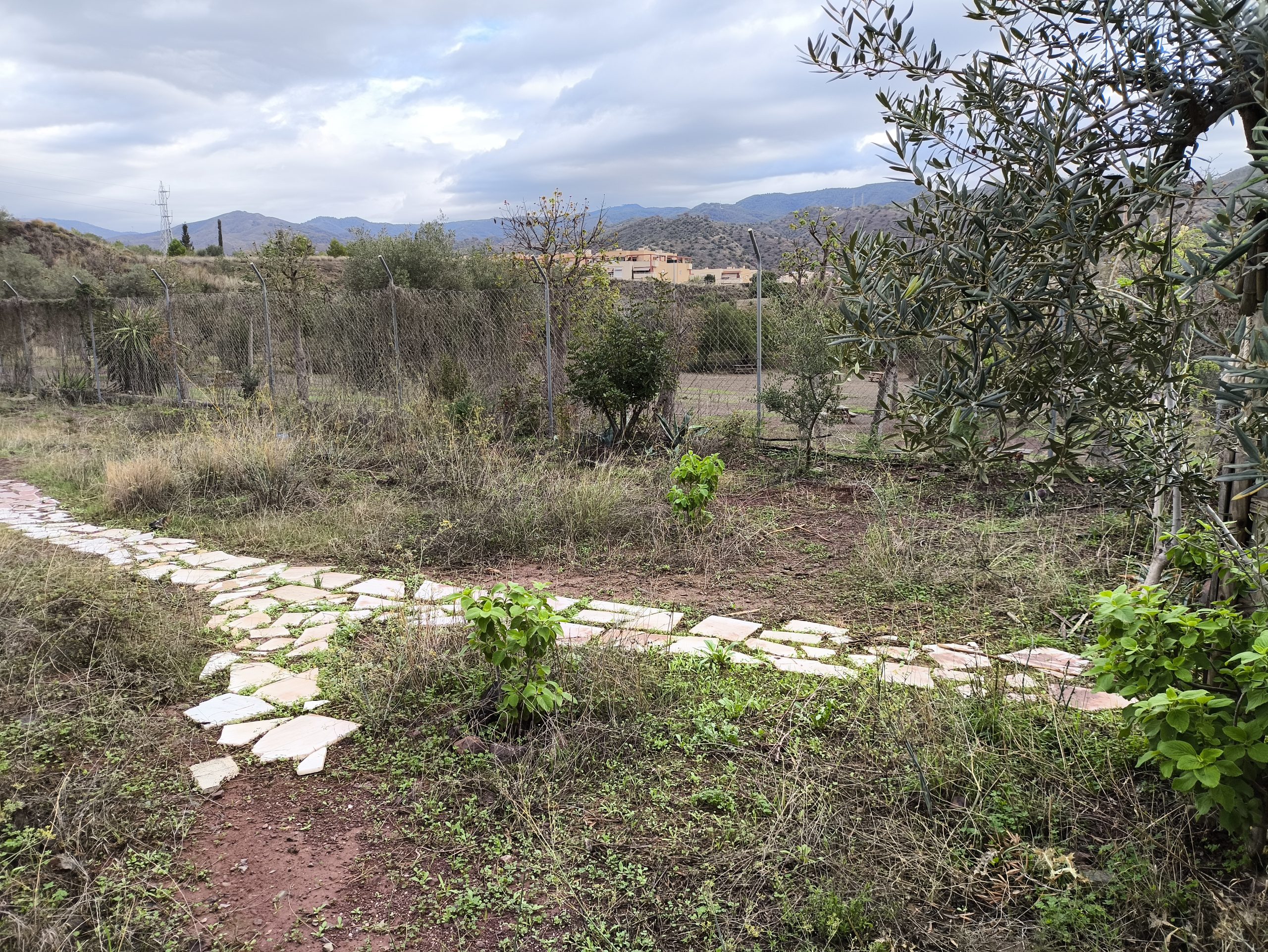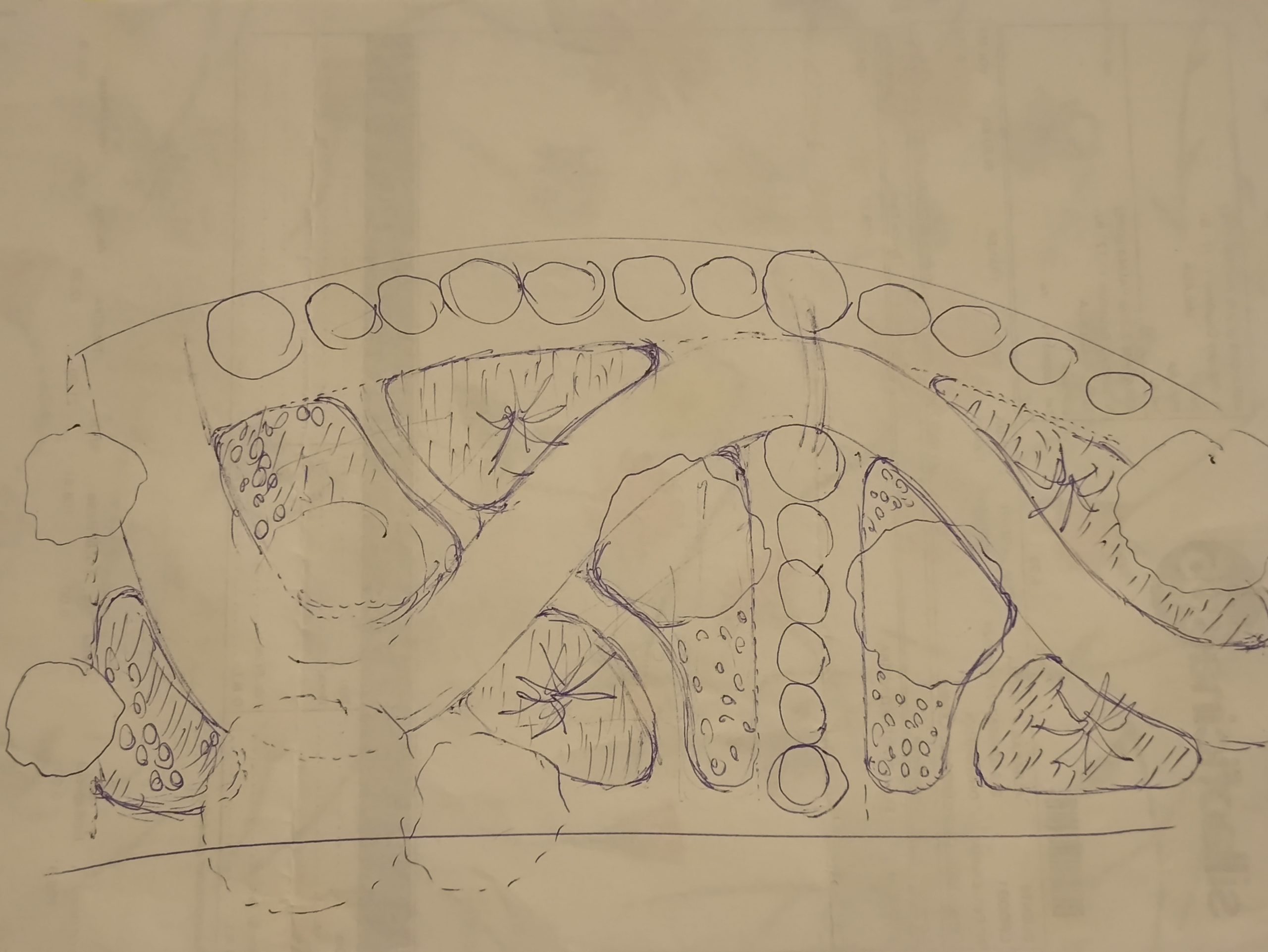Mediterranean Garden in Dignity Gardens
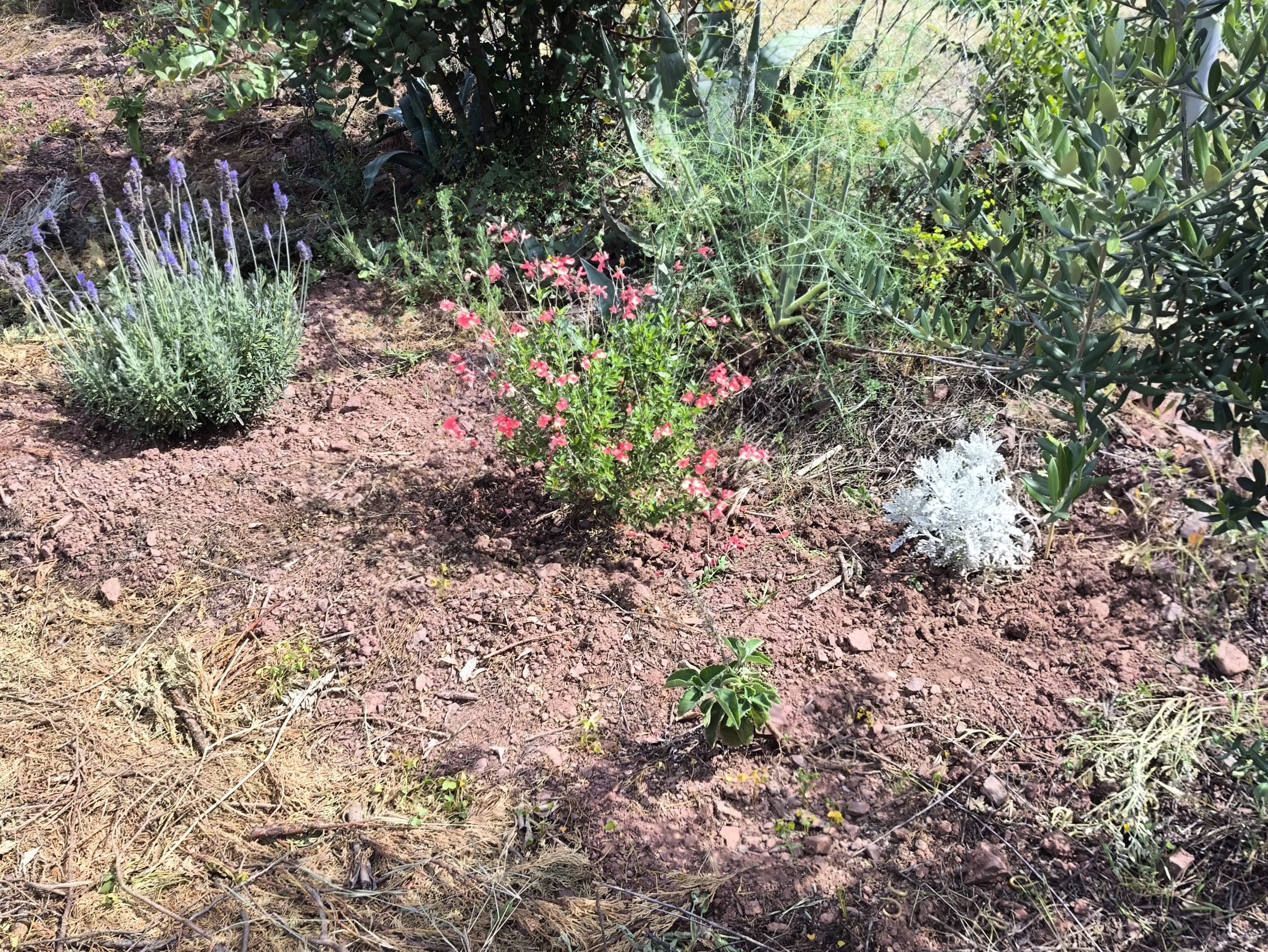
A challenge: The wild garden
In this non-profit project, we are helping to establish a garden with the following requirements: ornamental plants that do not require watering or any type of care, minimal or no maintenance, and the lowest possible budget. The association that maintains the space understands that in these conditions the garden may not look perfect, but it is imperative that the garden can survive untended, wild.
The clay soil already contains carob, olive, broom, and other Mediterranean species, as well as a wide variety of meadow grasses, which must be cleared in late spring to prevent fires.
The proposal was to landscape one side of the main path, near the entrance, creating an additional path with raised beds on both sides of the new path. Two different methods for the beds will be tested: some using the Filippi method, with the plants in a raised bed, and others using the rain garden method, with the plants in a sunken bed, to determine which is most effective in these conditions.
Land preparations
The land was tilled by hand with volunteer labor. Because the soil is very heavy, it was decided to incorporate arlite to facilitate maintenance and prevent soil compaction. Arlite has a structure similar to volcanic soil, is less extractive, and is available at a good price.
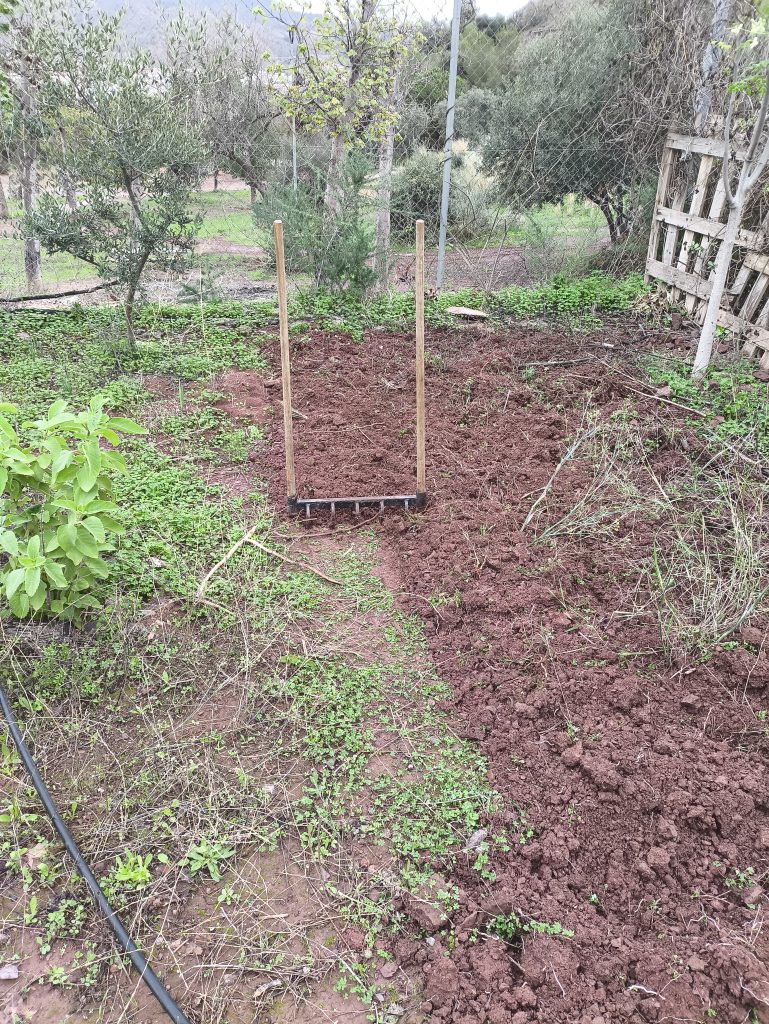
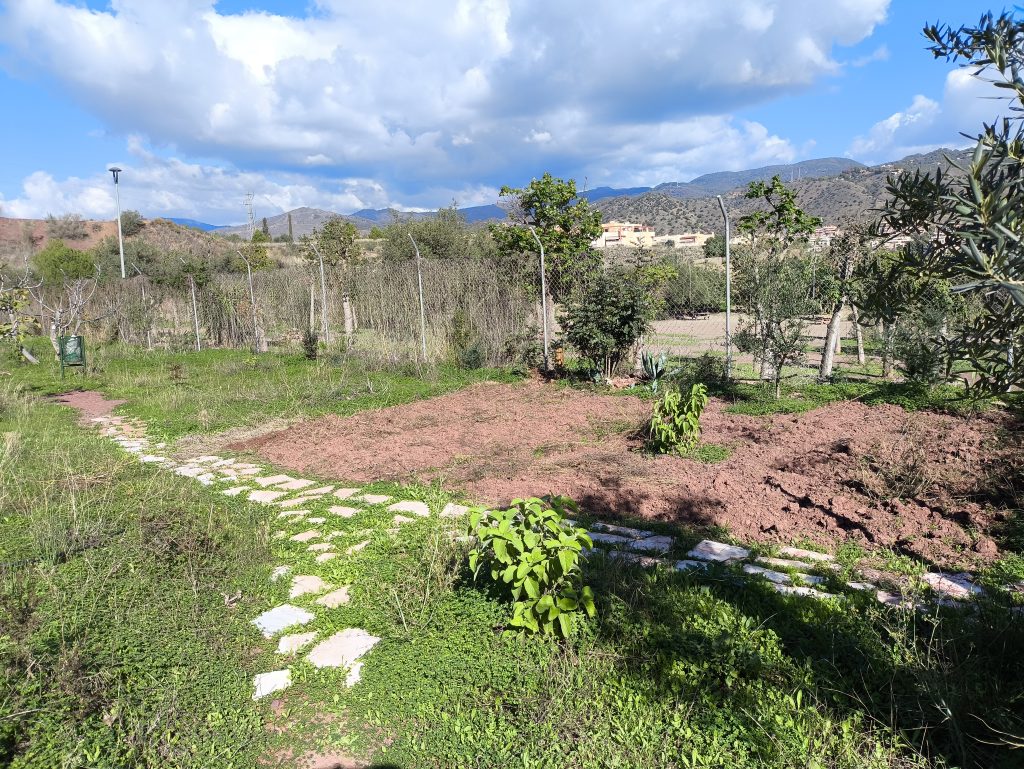
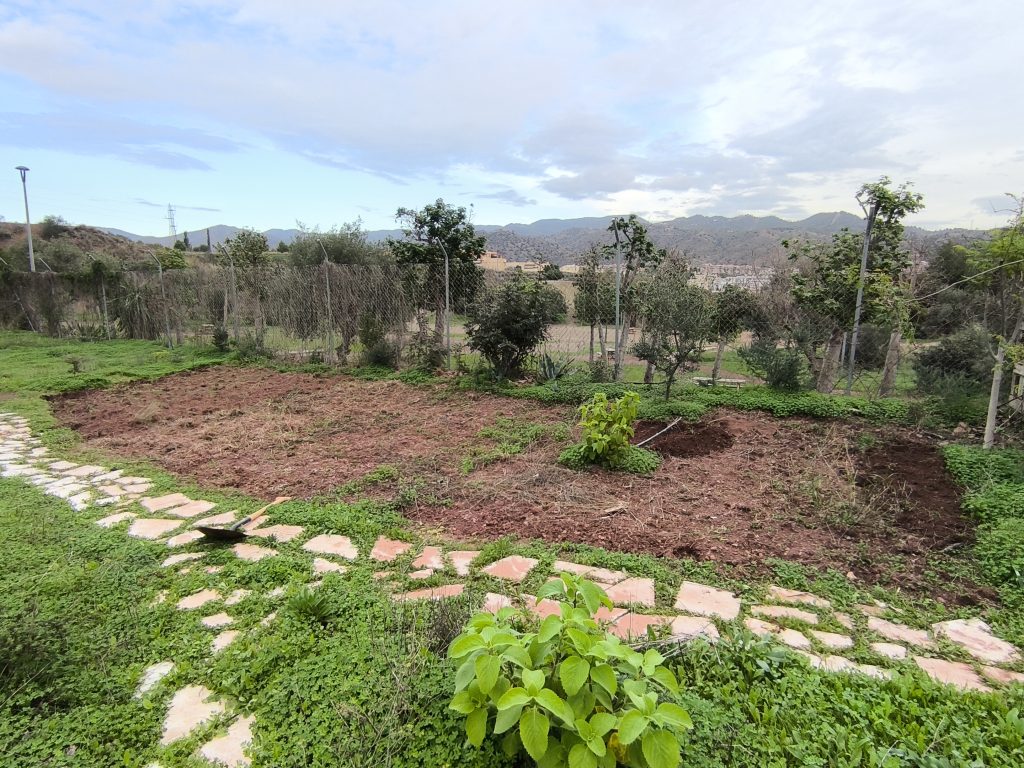
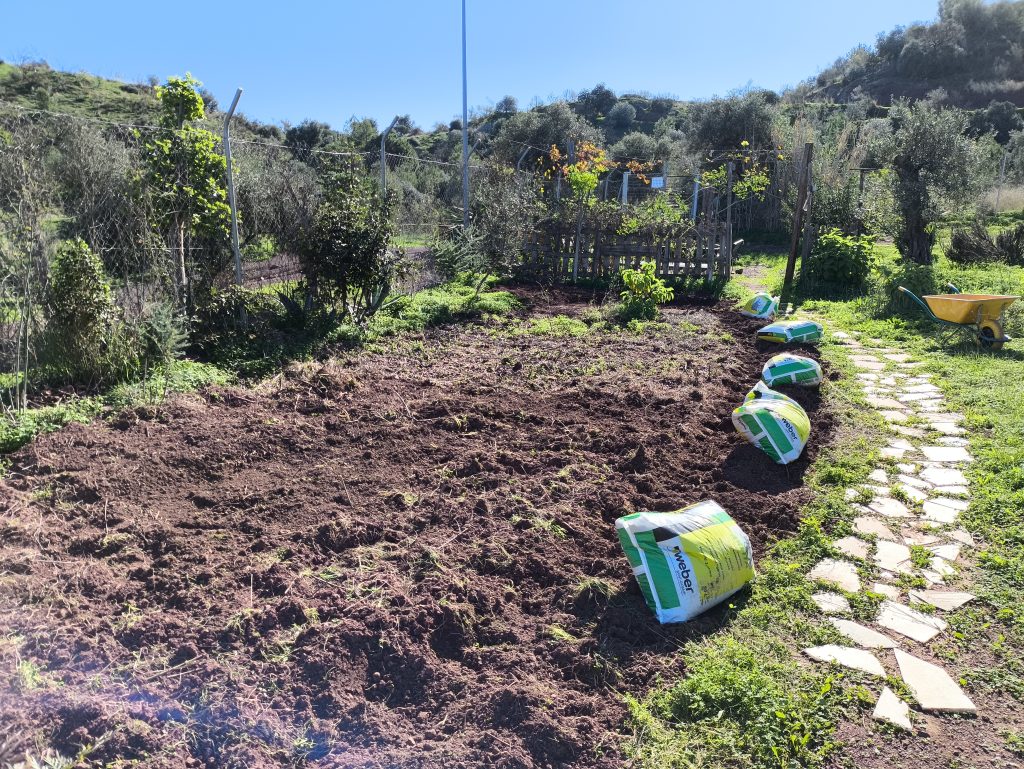
Species selection
Adapted species were sought from the organically grown Sierra Bella nursery in Tolox, and the following were purchased:
Salvia greggi, Pistacia lentiscus, Senecio macroglossus, Pyracantha coccinea ‘Red Column’, Lavandula dentata, and Spartium junceum.
Cuttings were also taken from Lampranthus barbatus and Geranium, which were already present in the field.
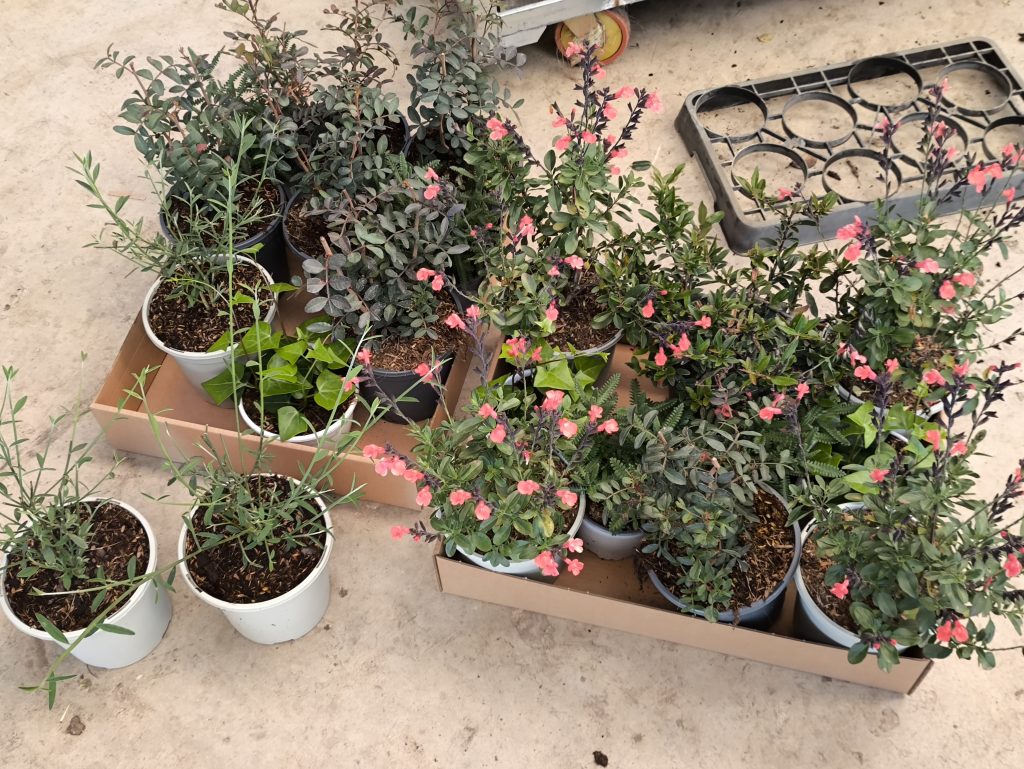
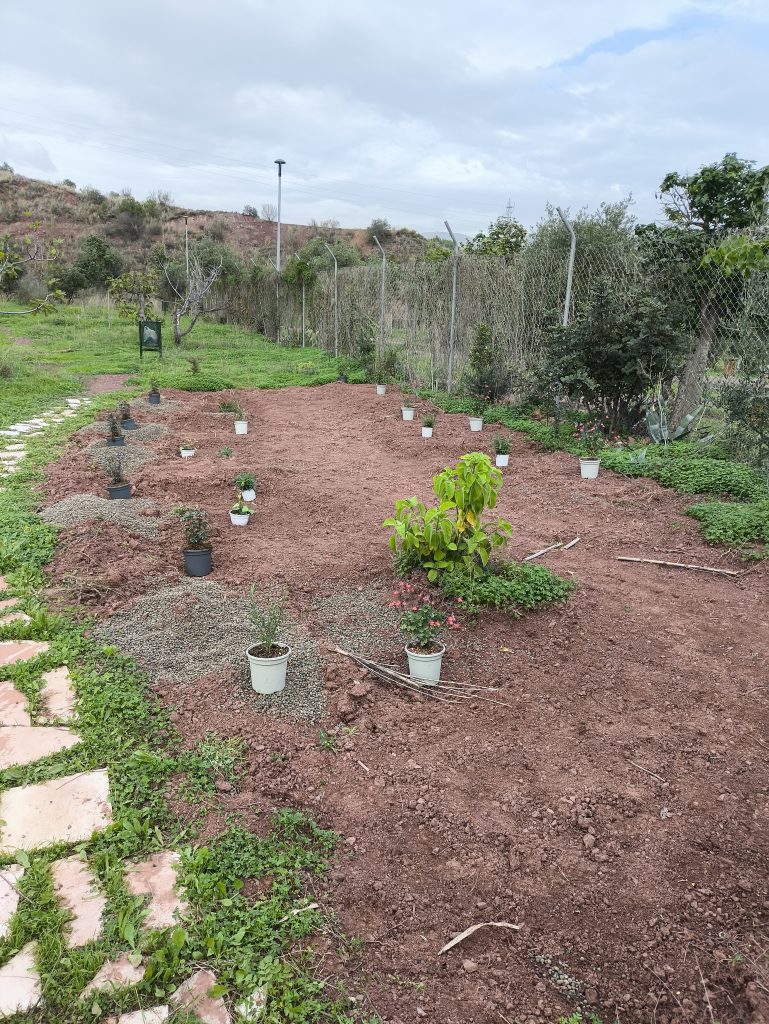
First watering and mulching
After planting, an initial intensive watering is necessary to ensure the roots adhere properly to the soil. Fortunately, this wasn’t necessary, as the torrential rains that caused so much damage elsewhere were a great help here.
To retain as much moisture in the soil as possible and prevent the growth of unwanted plants, the garden’s central path was covered with pruning clippings as mulch. This hasn’t prevented the sprouting of some fennel and sorrel, thistles, and hedge mustard, but it is more controlled than in other areas.
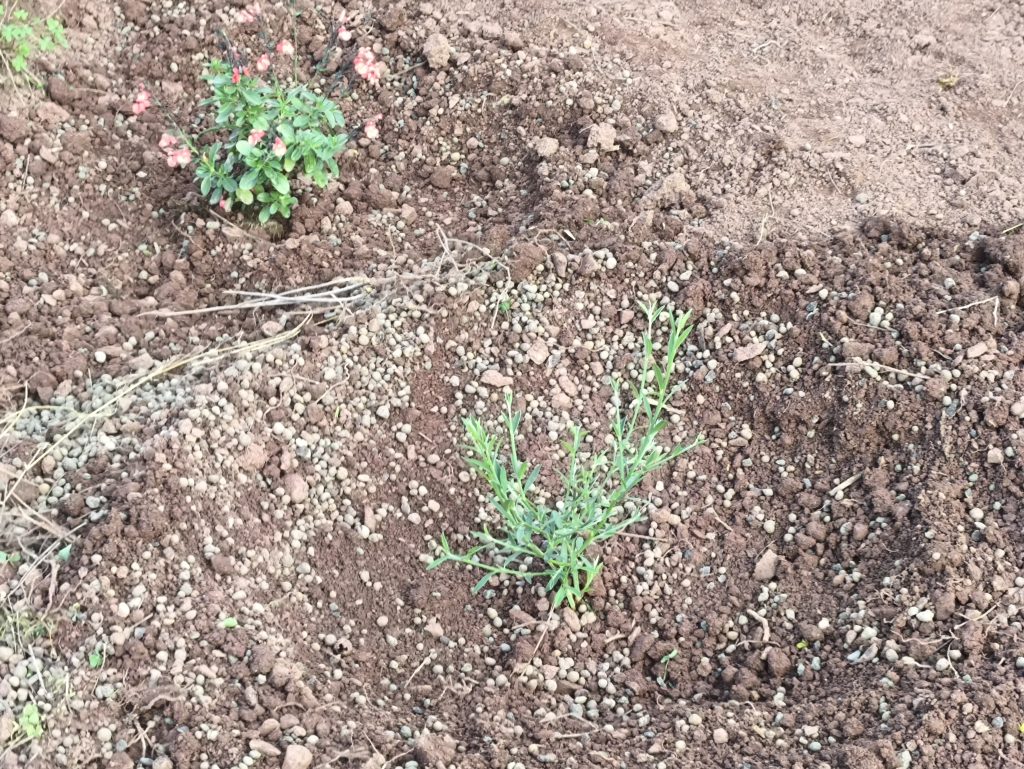
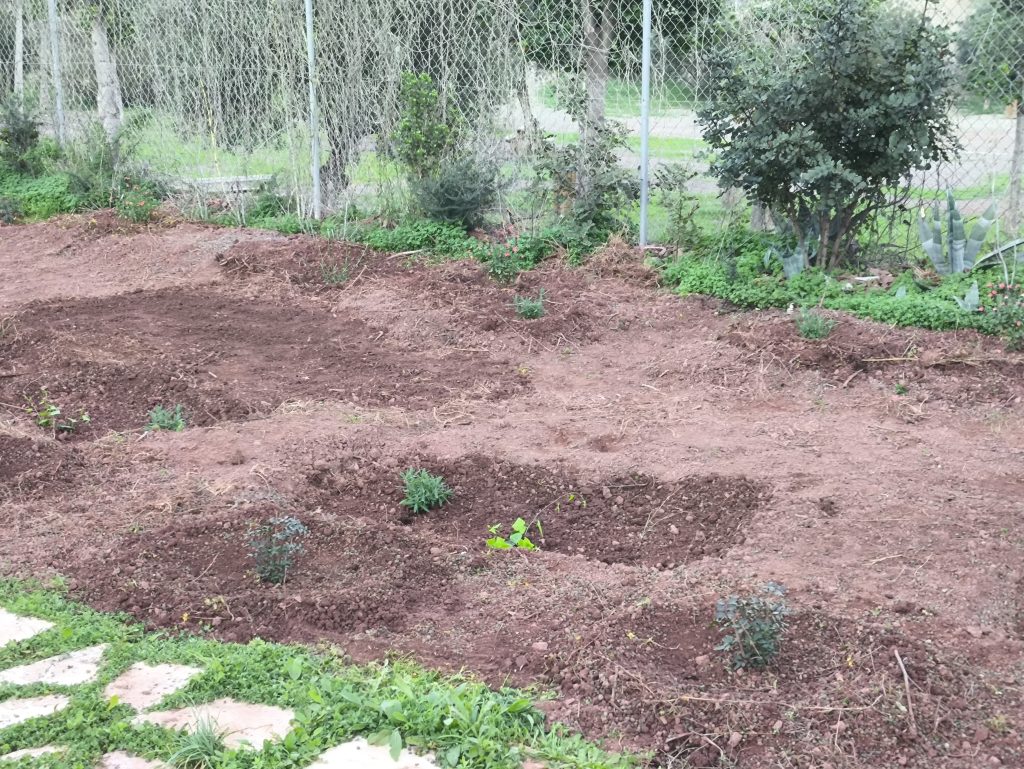
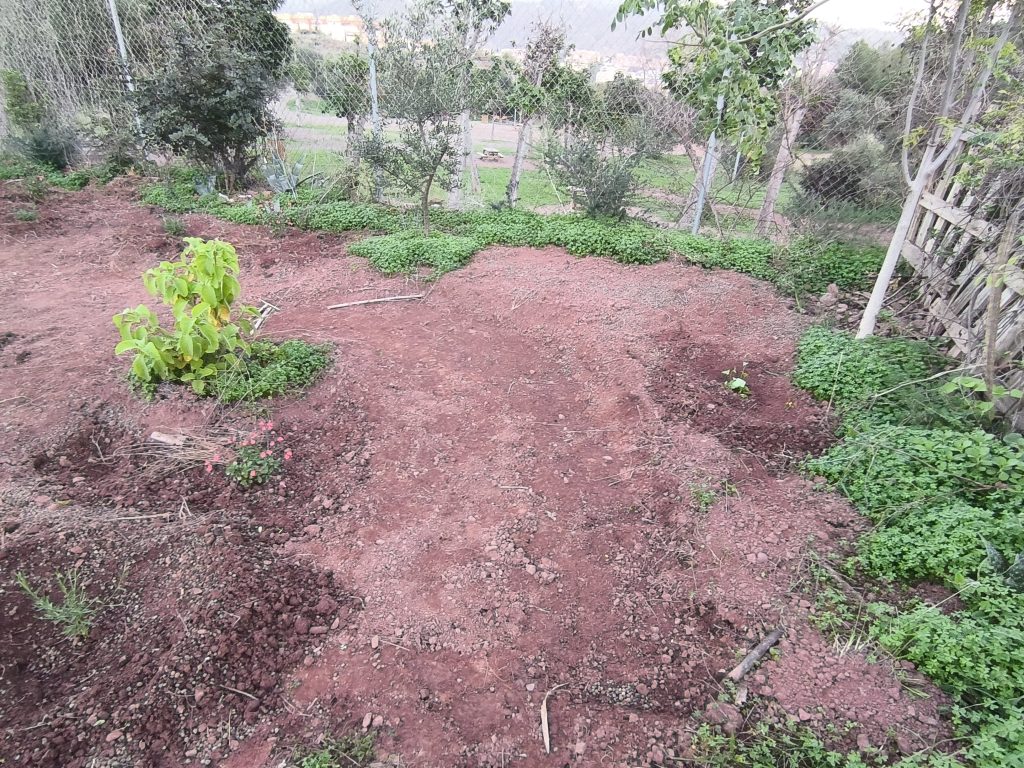
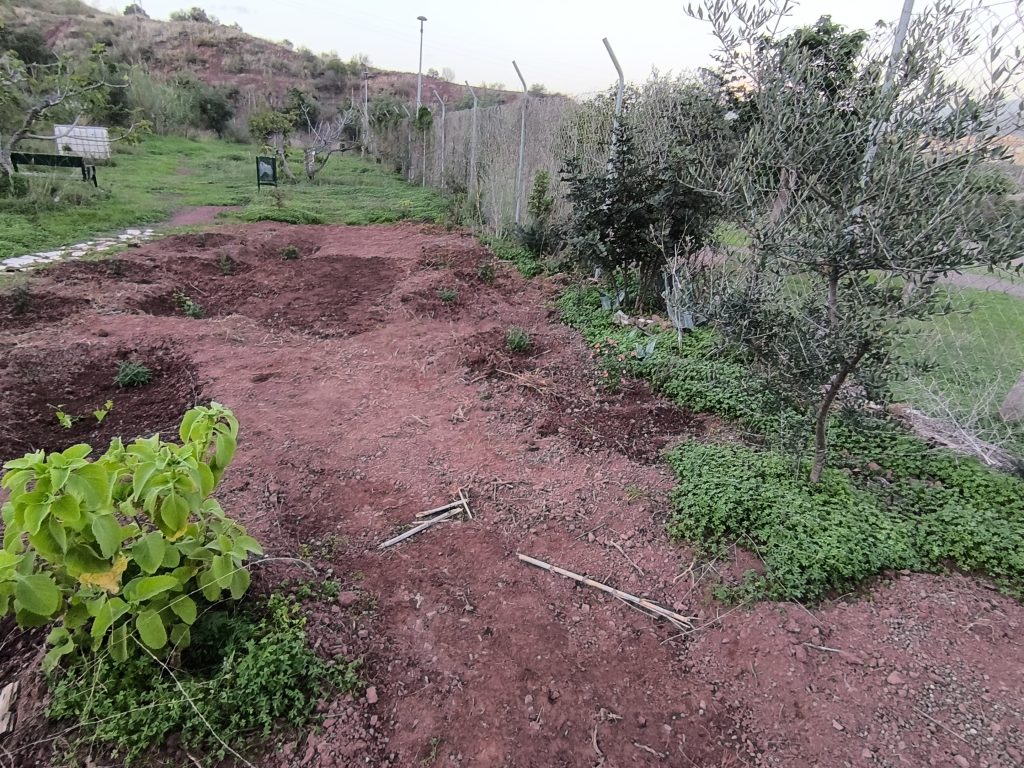
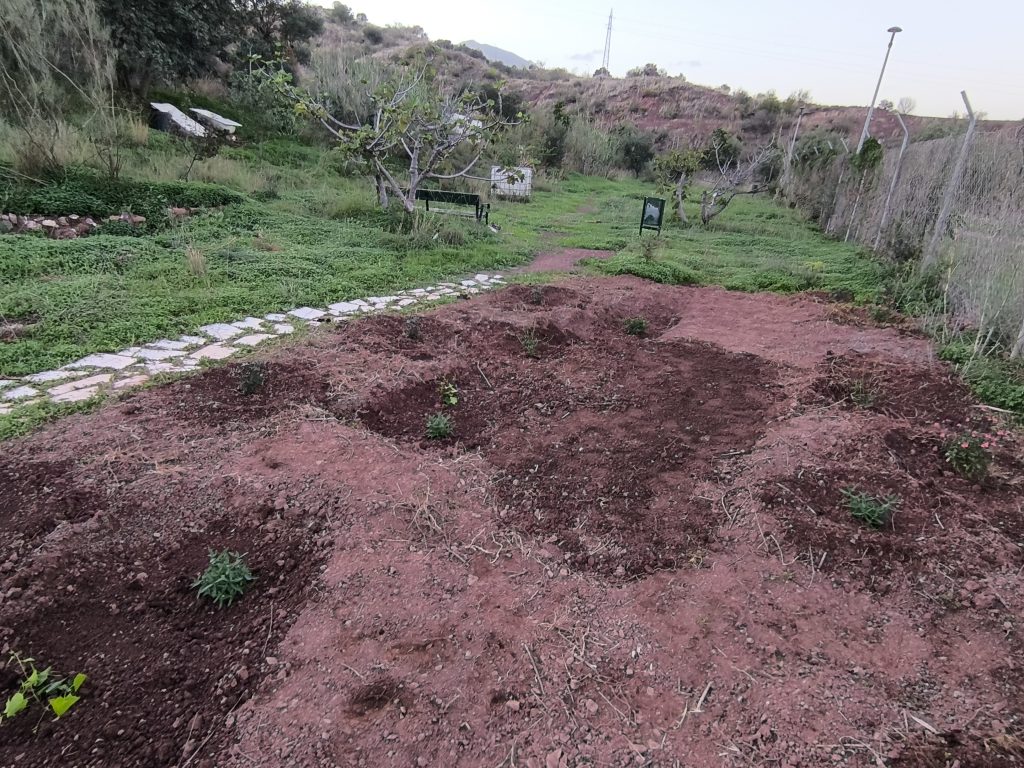
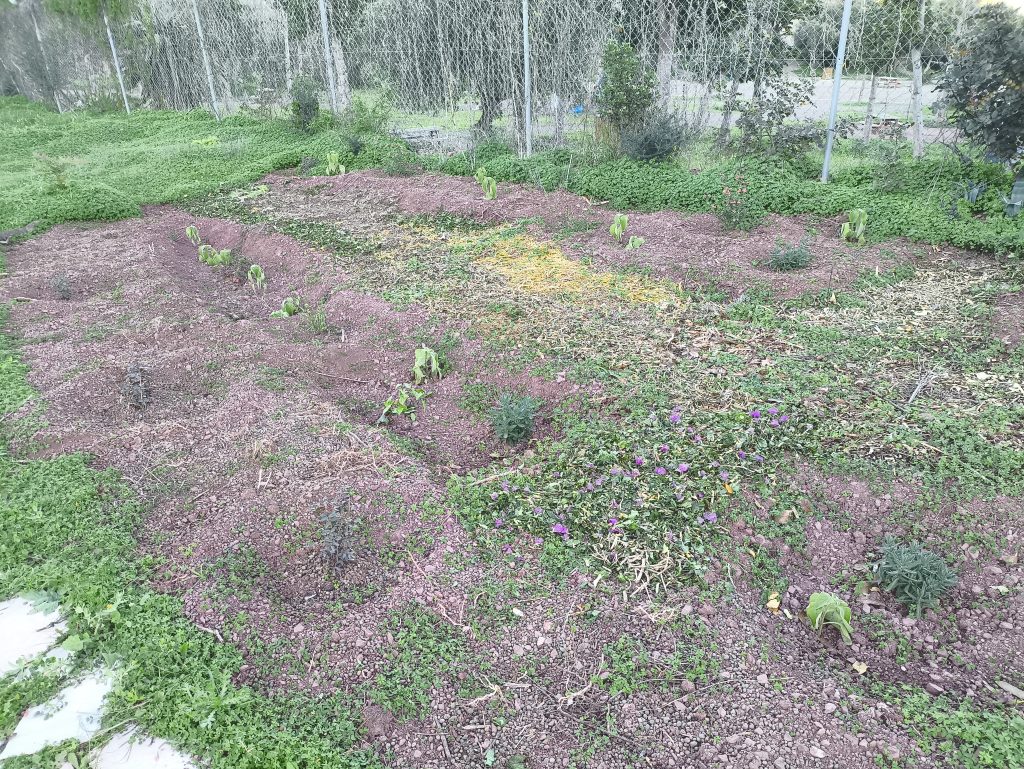
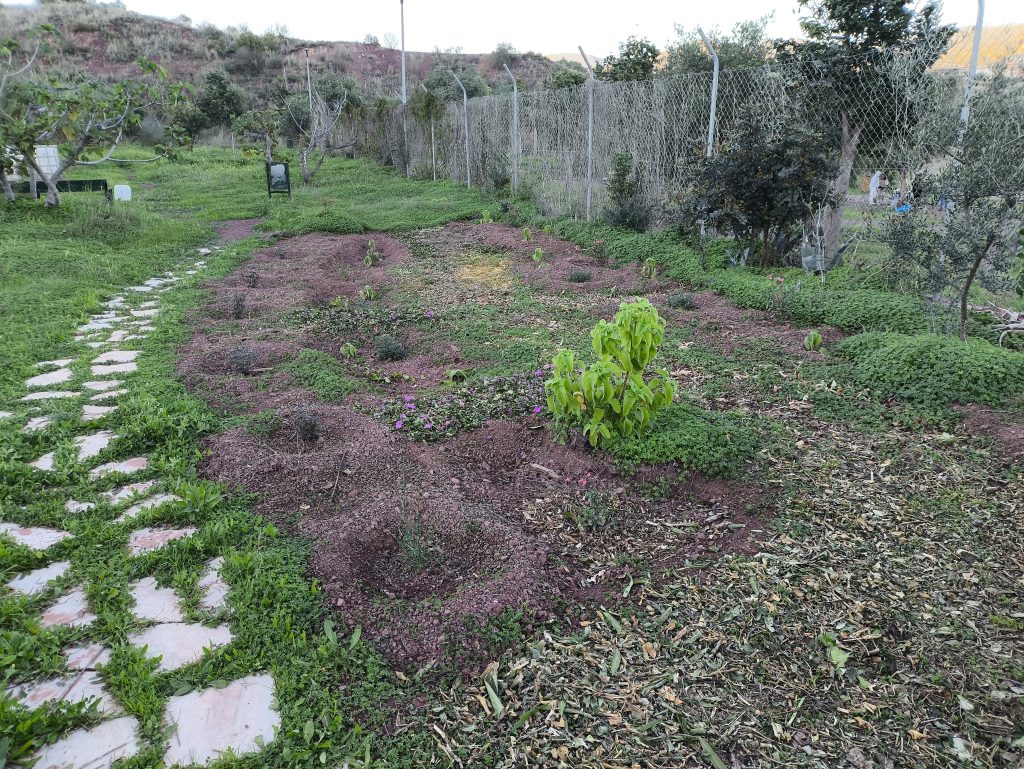
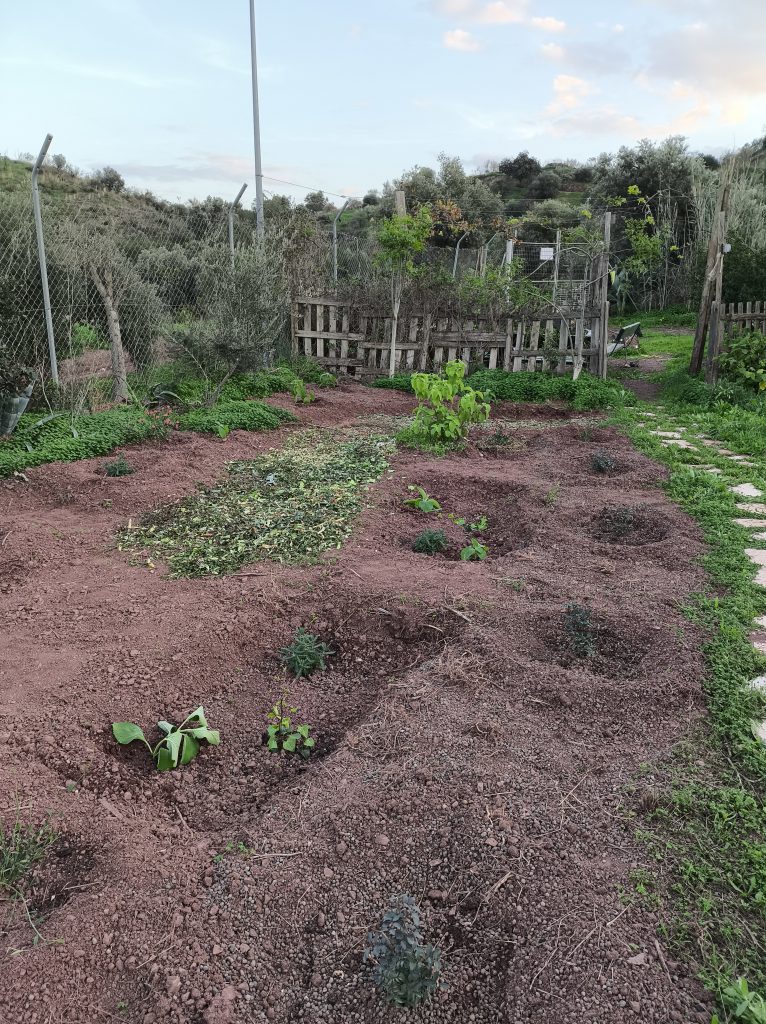
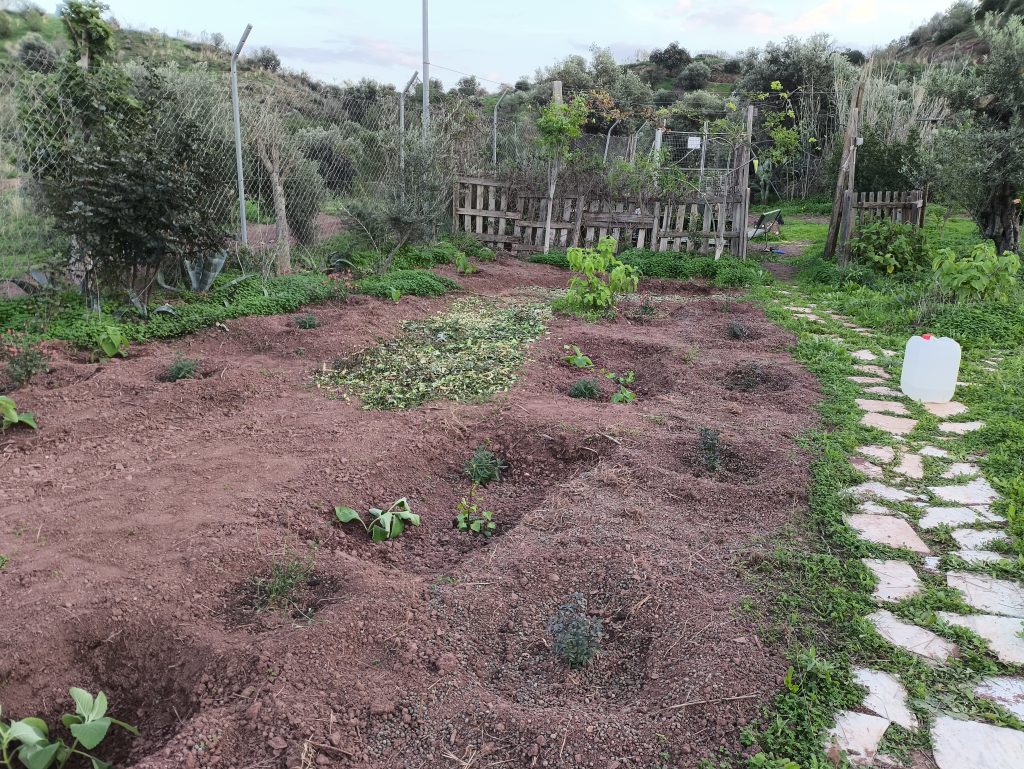
Replanting
Although the spring was rainy, some plants did not survive the first few days of March’s ‘terral’ (dry, hot air) without irrigation, especially Salvia greggi. Losses were similar for both planting methods.
A second purchase was made from the Sala Graupera nursery, which has a greater variety of adapted species, adding: Cineraria maritima, Westringia fruticosa, Hemerocallis, Salvia lycioides, Ceratostigma plubaginoides, and Hypericum.
The only maintenance the plants receive is occasional weeding to reduce water stress and to distinguish the ornamental plants from the wild ones.
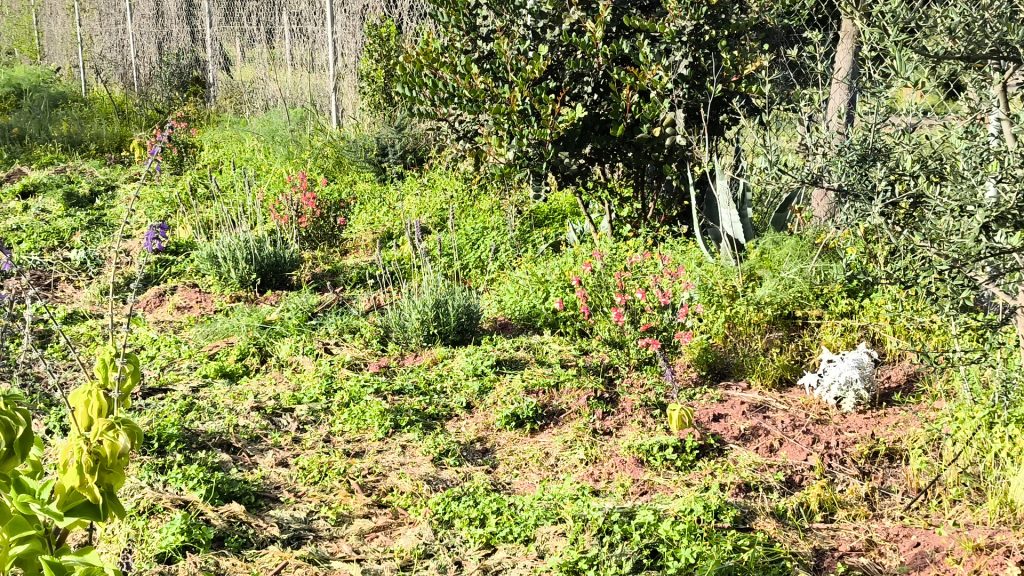
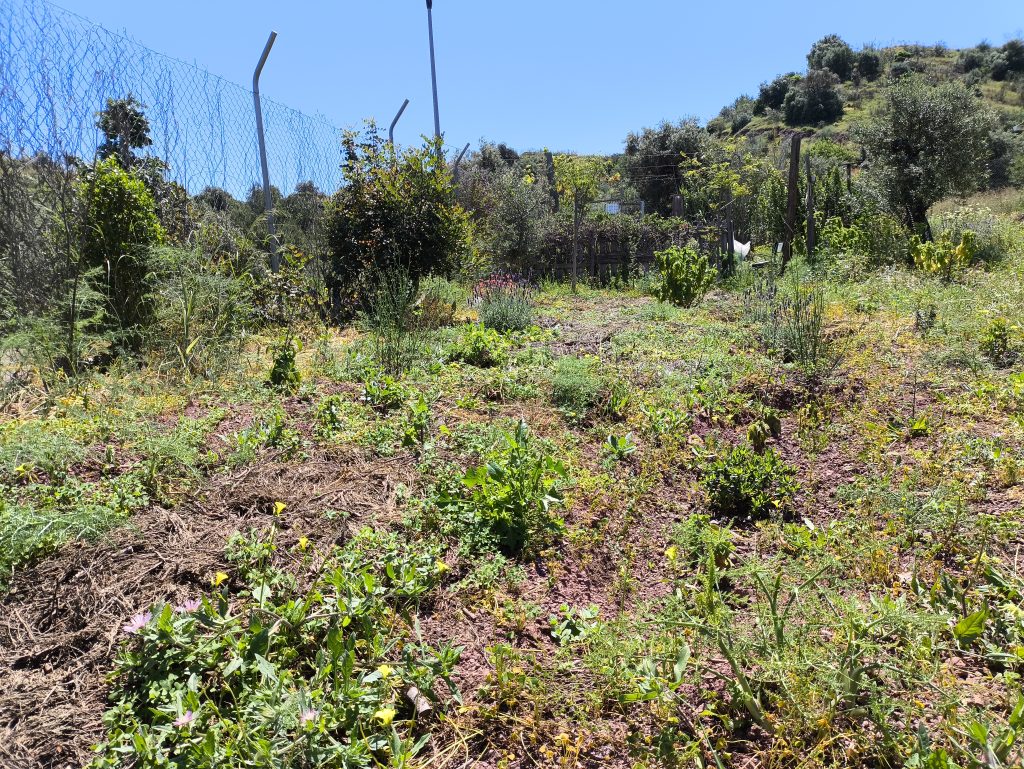
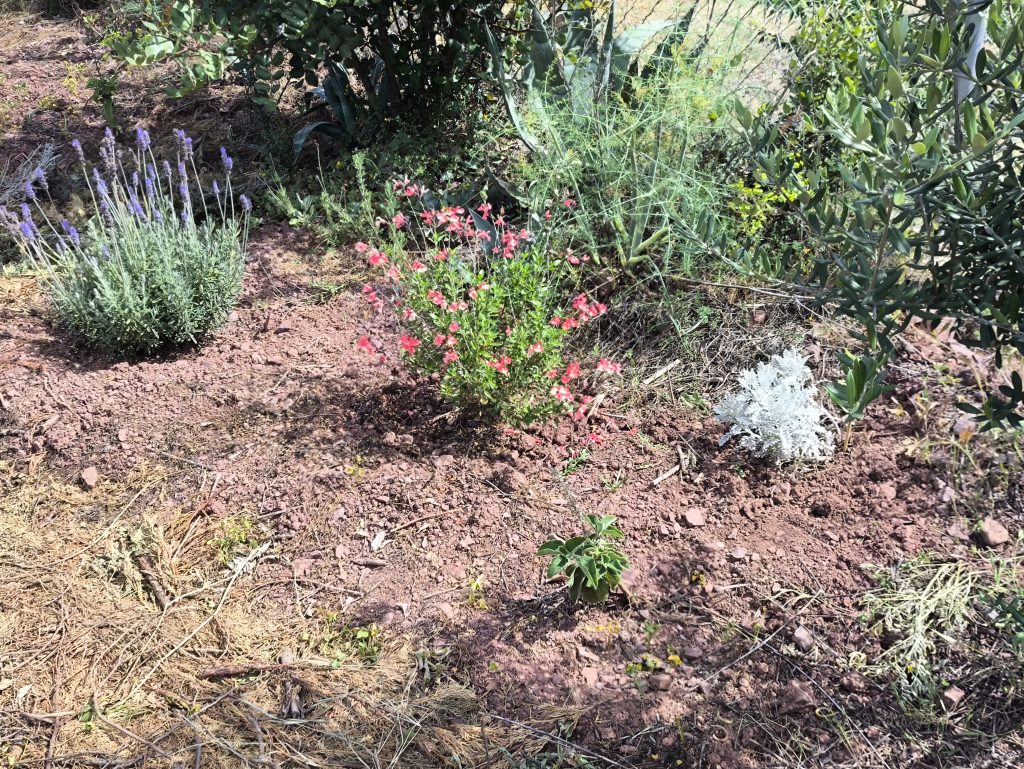
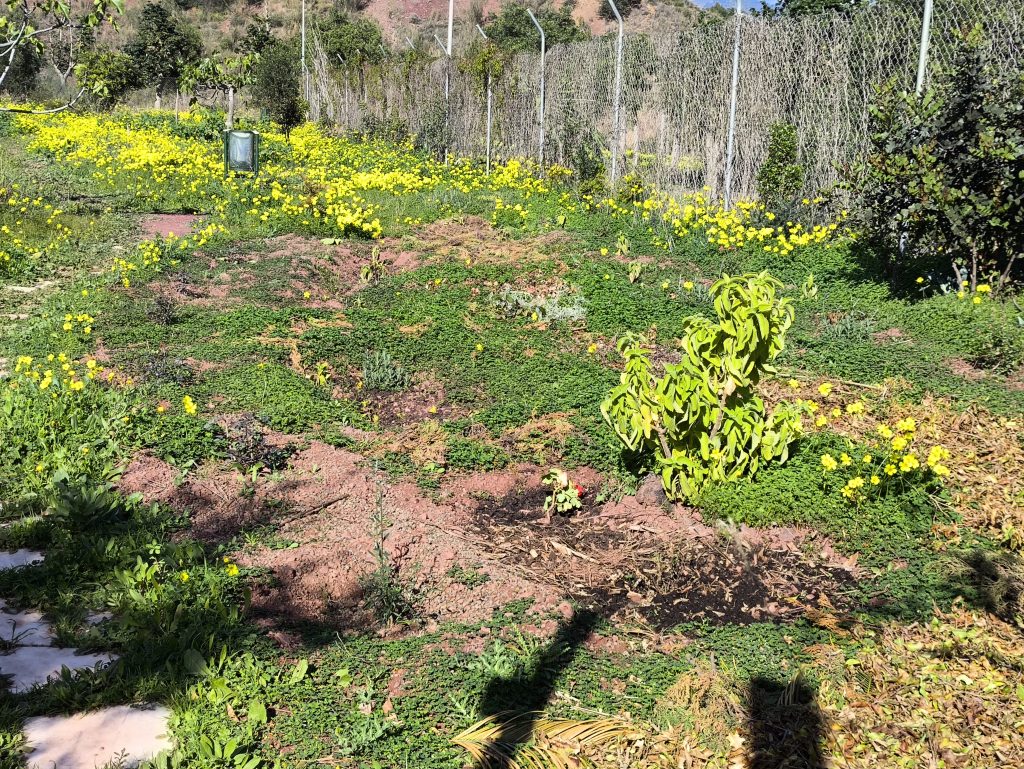
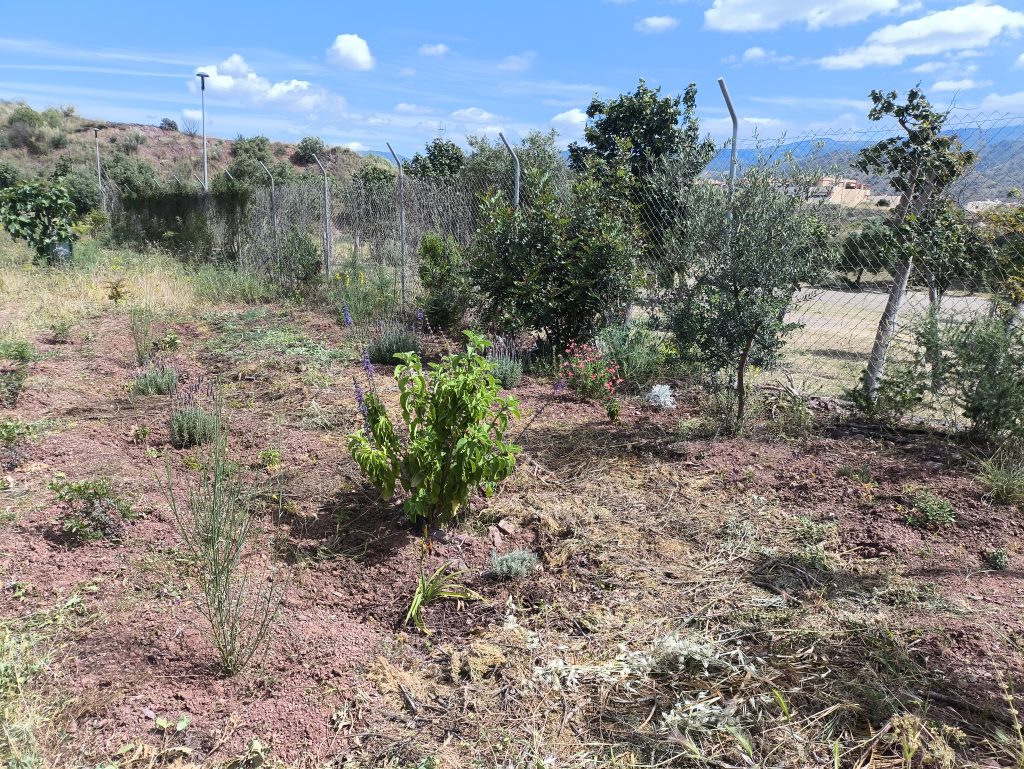
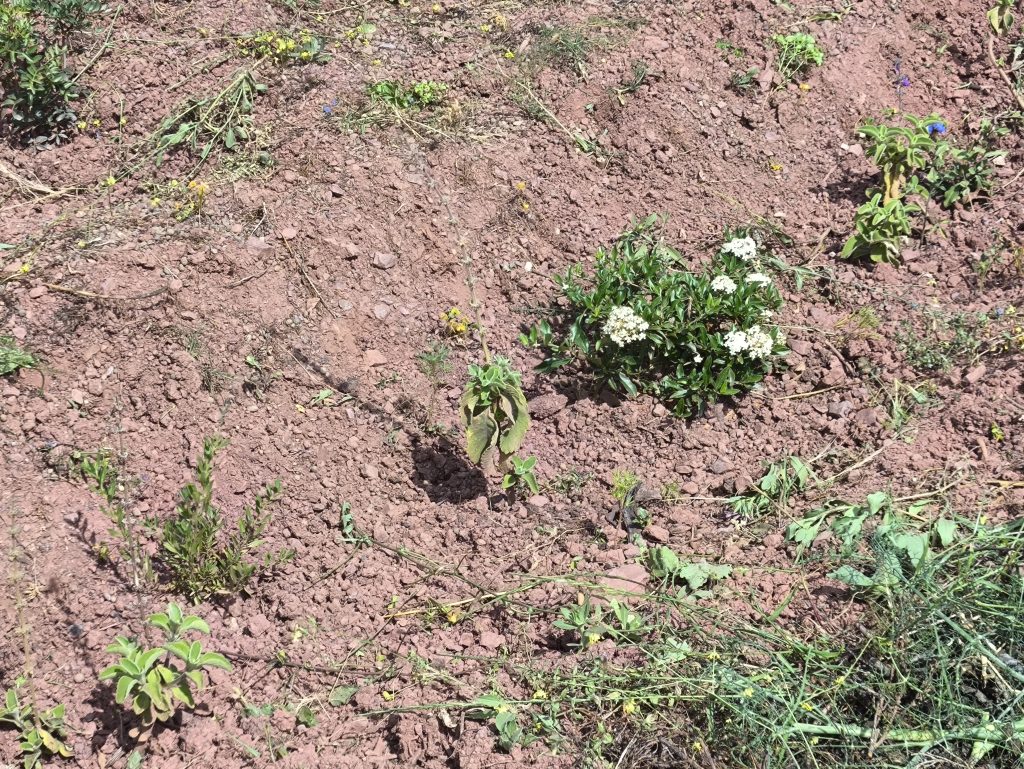
Work done: | Location: Málaga |
| Start date: 15/11/2024 | Duration: In process |

